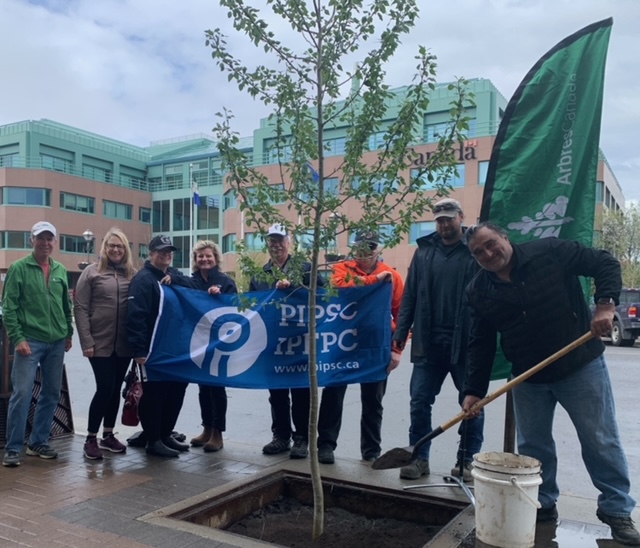PIPSC’s Human Rights and Diversity Committee is excited to lead this year’s Indigenous History Month celebrations.
The Truth and Reconciliation Commission presented 94 Calls to Action, which public service professionals, as all people in Canada, have a duty to support and implement.
In particular, PIPSC members should be aware of recommendation #57, which invites public service professionals to commit to reconciliation through education.
Enroll in an Indigenous history class
These courses explore the different histories and contemporary perspectives of Indigenous peoples living in Canada. They include education on the role and responsibilities of the Government of Canada towards Indigenous people and their ongoing struggle against colonialism.
PIPSC members who enroll in one of these courses can upload proof of their enrollment for a chance to win a $500 gift card supporting these Indigenous artists and businesses:
The contest is now closed. Congratulations to Boyong Liang, PIPSC AFS member, winner of the 2022 Indigenous History Month contest.
Courses
The Canada School of the Public Service offers multiple courses as part of its Indigenous Learning Series.
ENROLL IN A CSPS COURSE
The University of Alberta offers a free course called Indigenous Canada – a 12-lesson online course from its faculty of Native Studies. You can also pay a modest fee for a certificate upon completion.
ENROLL IN THE UALBERTA COURSE
Learn about Truth and Reconciliation at your next executive meeting
Are you interested in learning more about Truth and Reconciliation at your next branch, group or regional meeting? The PIPSC Human Rights and Diversity Committee is happy to join your meeting for a 1-hour presentation on the importance of Truth and Reconciliation.
REQUEST A PRESENTATION
Indigenous Day Live
PIPSC is a proud sponsor of APTN’s Indigenous Day Live. We encourage you to attend the celebrations in-person if you are in Treaty 1 territory (Winnipeg area), or online via the livestreams on June 18 at 6:00 PM CT.
New this year, IDL is being reimagined from a traditionally-hosted concert to a cultural and artistic presentation that shines a light on this year’s theme, “Celebrating Our Lands.” The show celebrates gender diversity and the important connection Indigenous women have to the land. Each act is led by an Indigenous woman or member of the 2SLGBTQ+ community.
You’ll also hear President Jenn Carr address the community, before the official PIPSC fireworks display.
Join the PIPSC Indigenous caucus
The Indigenous caucus advises the PIPSC Human Rights and Diversity Committee on issues directly related to Indigenous members.
Its mission is to advance equity in the union and workplace for Indigenous members through the elimination of barriers, including anti-Indigenous racism, and to support environments where members can reach their full potential.
PIPSC is now looking for members to join the caucus for a 1-year term. The focus this year is to support the development of a 3-year strategic plan for the caucus, and centralizing existing work on anti-Indigenous racism (i.e. research projects, committees, advisory boards).
Indigenous members, including First Nations, Inuit, and Métis, are welcome to apply. If you’re interested, please email HRDC Chair, Greg Scriver at gscriver@pipsc.ca.





 It is with great sadness that the Institute learned that Judith King passed away on December 4, 2021.
It is with great sadness that the Institute learned that Judith King passed away on December 4, 2021.